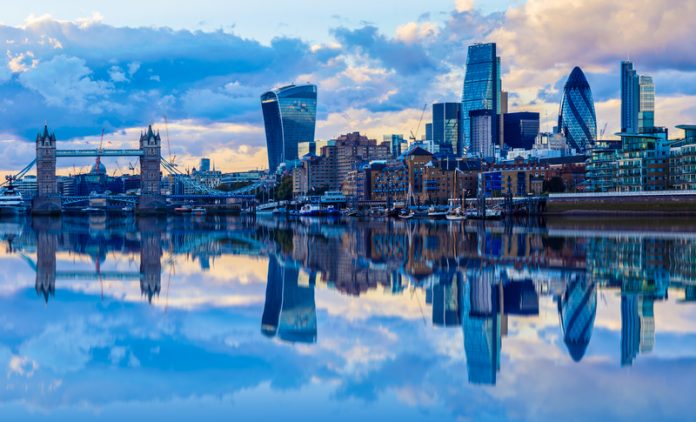Jonathan Miles, Editor of Open Access Government, charts the importance of climate change adaptation, the impact of lockdown, transport and the environment in Europe, as highlighted by Eurocities
While February temperatures in Brussels reached nearly 17 degrees Celsius three days consecutively, it’s a trend that has been replicated in other cities in Europe and beyond. The EU Strategy on Adaptation to Climate Change to 2030, sets out to move the EU “from planning adaptation to implementation, from understanding the problem to developing solutions”, states Alex Godson, Media Coordinator at Eurocities.
“At local level, many cities have already set ambitious strategies to prepare for and adjust to both the current effects of climate change and the predicted impacts in the future,” comments Louise Coffineau, Eurocities Policy Advisor on Climate. “In fact, nearly 90% of Eurocities members have adopted a climate adaptation strategy to protect their citizens,” she adds.
The European Commission strategy paves the way to prepare for the impact of climate change during the next decade and certainly, it contains “many positive actions,” Coffineau notes. “For example, there is a strong link between climate resilience and health, and a strong emphasis on nature-based solutions and the importance of freshwater. These are crucial elements for our cities – many of which are investing in green and blue infrastructure, renovating buildings with bio-based materials, and rehabilitating areas to create more green spaces for both the citizens and biodiversity.”
Certainly, the COVID-19 pandemic has shown the speed at which governments can move and that radical change can take place when there is a crisis to respond to. Hopefully, in this vein, when it comes to climate change, cities will recognise this as a threat and change how they “plan and construct themselves to minimise the impact of climate-related hazards on their territories,” Alex Godson notes. (1)
In this vein, the Big Buyers for Climate and Environment (BBCE) concerns big buyers working together to implement strategic public procurement for sustainable solutions, and this is driving the market for innovation. “Public procurement is the secret weapon in cities’ climate change arsenal,” Eurocities’ Secretary General Anna Lisa Boni comments. (2)
Lockdown and the environment
Lockdown has a positive side to it in that it has cut down morning commutes, trips to visit friends and family and holidays have been cancelled. City life throughout Europe, therefore, enjoyed the benefits of cleaner air, less noise and a calmer urban public space. “In fact, for many people, it was eye-opening just how quickly they felt the benefits of a healthy urban environment,” said Alex Godson at Eurocities.
Riga in Latvia is a city keen to learn lessons from the pandemic and plans to make use of the proposed EU recovery funds towards its journey to become a green capital while easing the burden of travel for those who commute. “Without this type of project, the urban sprawl will continue,” says Vilnis Ķirsis, Vice Mayor of Riga. “The quality of life in Riga would deteriorate, there is a risk that residents would continue to leave the central part of the city, as more continue to move to nearby municipalities, and would come to Riga for work only with their private cars,” the Vice Mayor continues.
There are plans in Riga for a joined-up city network of transport and mobility infrastructure, including the creation of a single purchase transport ticket to work across regional municipalities and various services.
“The reform of the current public transport system will also foresee a reduction of the carbon dioxide emissions of the transport sector and will significantly improve the sustainable, safe and efficient public transport services available to the residents and visitors of Riga in general,” commented Ķirsis. (3) This links in with the new political leadership that wants to promote an ambitious climate neutrality agenda.
Cities in Europe beyond the pandemic
Beyond the pandemic, Eurocities is calling for “urgent investment into projects that can support a green, fair and digital transformation, while creating opportunities for people and business.” (4) London in the UK will offer grants to businesses and individuals that can come up with innovative solutions for the city’s recovery in partnership with nine charities and local authorities. (5) In Berlin, Germany, an amendment to the city’s mobility law came into force on 24th February, giving greater rights and protections to pedestrians in light of changing mobility patterns during the pandemic. (6)
Looking ahead, a digital city has been created by Eurocities, consisting of the best examples of how real cities throughout Europe face the challenges of COVID-19 and beyond. The animated website ‘Reinventing cities’ is home to several characters who invite visitors to explore and learn about the stories behind the speech bubbles. “2020 has been a different year, a unique year,” says Anna Lisa Boni, Secretary General of Eurocities. “That’s why our annual report had to be special as well.” On the subject of the report, this included no less than 70 examples of collected city actions plus over 25 Eurocities initiatives and projects. (7)
References
1) https://eurocities.eu/latest/dialling-up-the-heat-on-climate-change-adaptation/
2) https://eurocities.eu/latest/big-buyers-share-future-areas-for-collaboration/
3) https://eurocities.eu/latest/riga-rethinks-public-transport-links/
4) https://eurocities.eu/latest/involve-cities-in-a-green-and-digital-recovery/
5) https://eurocities.eu/latest/city-news-london-calling-on-innovators-to-overcome-covid-challenges/
6) https://eurocities.eu/latest/city-news-berlins-pedestrians-to-get-more-protection-with-new-law/
7) https://eurocities.eu/latest/the-city-of-tomorrow/












How good to see an entire continent concerned about the health of our planet and to see it taking steps to improve it. COVID at least brought a respite for climate change and I hope that this time of quarantine, more ideas will be specified to continue fighting it. Excellent article, thanks for sharing. – Gustavo Copelmayer, director of strategic development.